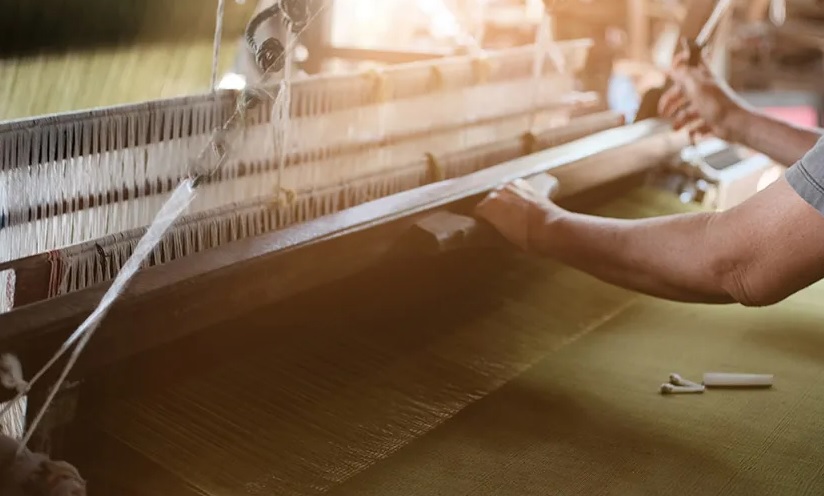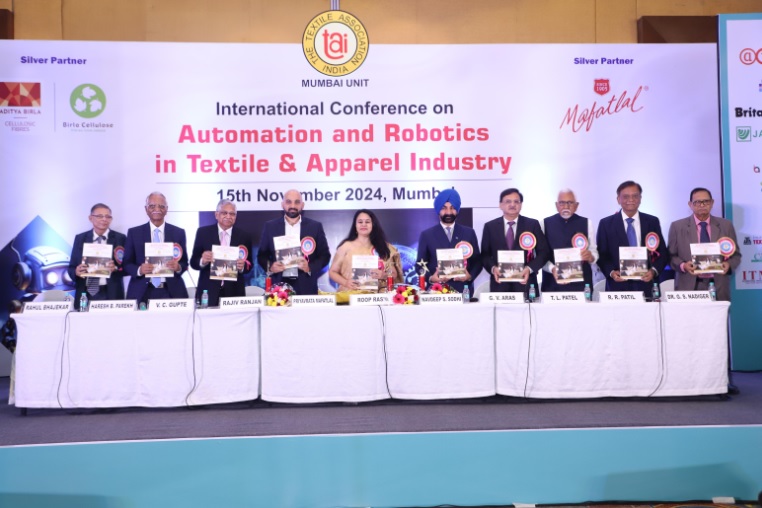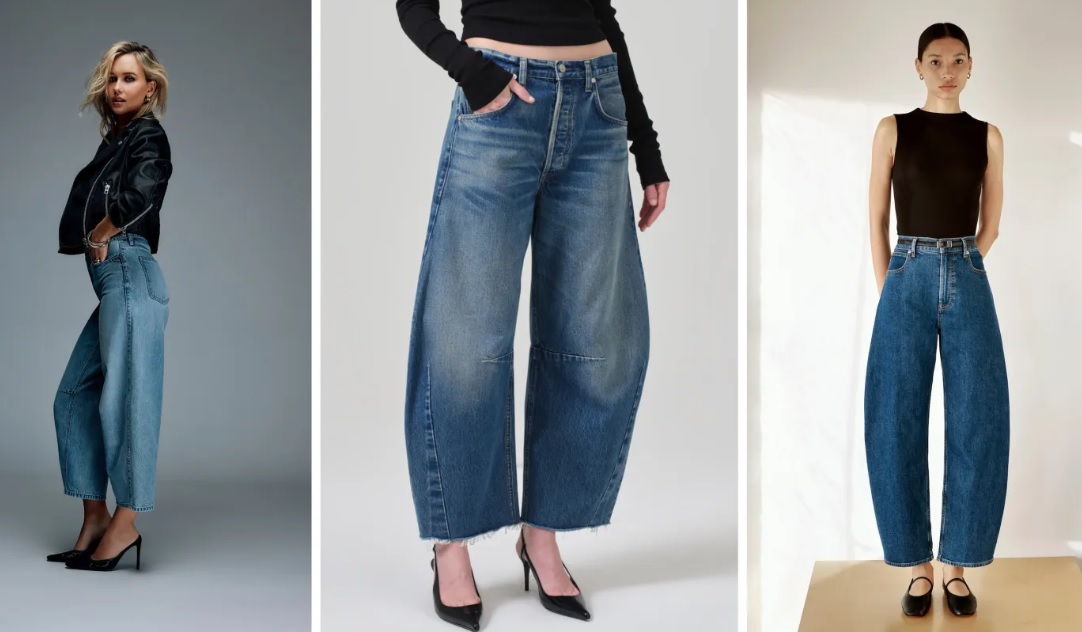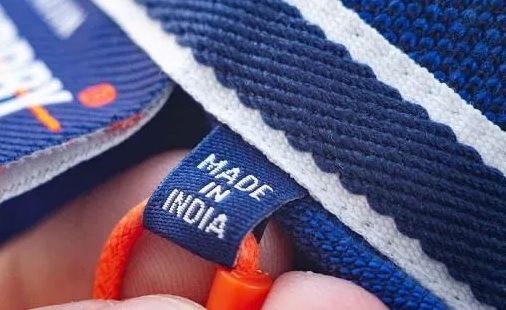FW
Coats Digital proudly announces that SQ Celsius Ltd, a leading knitwear specialist and subsidiary of SQ Group, has achieved remarkable operational improvements following the implementation of its FastReactPlan solution in 2019. The digital transformation has resulted in a 6 per cent increase in production efficiency, an 8 per cent boost in on-time delivery performance (OTDP), and a 7 per cent reduction in unnecessary overtime hours. These gains have contributed to a 5 per cent business growth and significant annual profits.
Headquartered in Dhaka, Bangladesh, SQ Celsius operates two LEED Platinum-certified factories in Gazipur and Mymensingh, employing 18,000 people and producing over 2.4 million pieces monthly. Its clientele includes global brands such as M&S, H&M, Inditex, Ralph Lauren, PVH, and GAP.
Before adopting FastReactPlan, SQ Celsius faced challenges due to fragmented data management. Reliance on Excel spreadsheets for capacity planning and production scheduling led to data silos, bottlenecks, and delayed deliveries. The inability to forecast demand accurately or optimize inventory disrupted cash flow and inflated costs.
Trevin Banks-Clifford-Wijesinghe, Head of Planning at SQ Celsius, highlighted the challenges the company faced due to a lack of visibility and disjointed data. These issues led to operational inefficiencies that impacted customer commitments and profitability. The implementation of FastReactPlan significantly improved the company’s planning processes by providing real-time data visibility and enhancing overall agility.
With a centralized planning system, SQ Celsius now benefits from streamlined scheduling, accurate Cost-to-Make (CM) quotes, and the flexibility to accommodate diverse orders and style changes. This has reduced excess material purchases and improved cash flow.
CEO Shane Baldsing emphasized the transformative impact of FastReactPlan on the company's operations. He noted that the solution has helped balance inventory, reduce costs, and improve cash flow. Additionally, its real-time insights have enhanced customer relationships and positioned SQ Celsius for long-term growth and success.
Golam Mahbub Sikder, Customer Success Manager at Coats Digital, commended SQ Celsius’s achievements, attributing their success to the impact of digitization in enhancing efficiency and driving business growth. He expressed enthusiasm about continuing the partnership and supporting SQ Celsius in achieving future milestones.
FastReactPlan, part of Coats Digital’s Manufacturing Solution Suite, offers dynamic, visual production planning for the apparel industry, enhancing delivery, efficiency, and lead times.
The International Istanbul Yarn Fair, organized by Tuyap Fair & Exhibition Group, will return from February 26-28, 2025, at the Tuyap Fair Convention and Congress Center. Recognized as a vital platform for the yarn and textile industry, the event will host over 500 exhibitors and attract more than 20,000 visitors from around the world.
Following the success of its 2024 edition, which featured 490 exhibitors and welcomed 15,267 visitors from 87 countries, including Germany, Italy, China, and Russia, the 2025 fair aims to surpass these figures. The previous event facilitated numerous high-value trade agreements, solidifying its reputation as a key driver of industry growth.
The 2025 fair will cover 50,000 square meters across eight halls, emphasizing sustainability and innovation. Leading companies such as Sanko Holding, SASA Polyester, and AKSA Akrilik have confirmed their participation, promising a diverse showcase of cutting-edge yarn products and trends.
Professional buyers and decision-makers will have the chance to explore innovative yarn varieties and engage in networking opportunities. This global gathering is not only a marketplace but also a space for knowledge exchange and trend forecasting, making it an essential event for industry stakeholders.
With an expanded exhibitor lineup and increased visitor targets, the International Istanbul Yarn Fair is poised to set new records and further cement its status as a premier event in the global yarn and textile industry.
The recently concluded November 2024 edition of Miami Fashion Week® (MIAFW) highlighted Miami’s role as a global fashion hub while setting the stage for an exciting 2025 season. The event concluded with showcases from celebrated designers such as Philipp Plein, Lafayette 148 NY, Giannina Azar, Yas González, Shantall Lacayo, Claro Couture, Sigal, and Yenny Bastida.Curated by Sergio Salerni, Brand Partner and Director, Milan Fashion Week, the showcase reaffirmed MIAFW's prominence in the industry.
The fashion week commenced with a press conference at the Gary Nader Art Centre, where Mayor Daniella Levine Cava; Oliver G. Gilbert III, Chairman and fashion leaders like Elliot Carlyle welcomed MIAFW back to Miami. The festivities launched with Philipp Plein’s signature urban style at the prestigious ‘Designers' Dinner’ held at Queen Miami Beach, attended by notable trendsetters such as Osmariel Villalobos, Hofit Golan, Rodner Figueroa, and Carlos Adyan.
Throughout the week, Miami hosted a variety of standout events. Lafayette 148 NY presented an elegant outdoor runway show atop Mr C Miami Coconut Grove, while Giannina Azar dazzled audiences with radiant eveningwear at the Gary Nader Art Centre, modeled by Miss Universe finalists Marianela Ancheta (Cuba 2024), Celinee Santos Frias (Dominican Republic 2024), and Ileana Márquez Pedroza (Venezuela 2023).
The ‘Influencers Brunch’ at Sofia Design District featured Shantall Lacayo's newest collection, while Ágatha Ruiz de la Prada captivated audiences with an intimate book presentation at the Gary Nader Art Centre, offering insights into her illustrious career. Exclusive in-store events hosted by Sigal and Lafayette 148 enhanced the experience, drawing fashion enthusiasts from across the globe.
Highlighting extraordinary talent, the November edition of Miami Fashion Week showcased Miami’s global fashion influence, says Lourdes Fernandez-Velasco, Executive Director, MIAFW. Supported by the Miami Fashion Institute, the Miami Fashion Week Summit offered thought-provoking insights into the future of fashion, the event brought together industry leaders such as Rodner Figueroa, Andrea Minski, Vanessa Sanchez, Taryn Hipwell, etc, to discuss sustainable fashion and the impact of influencers.
MIAFW also emphasised its economic and cultural contributions. The event generates jobs, tourism, educational opportunities, and global branding for the city, says Fabian Basabe, State Representative, Florida House of Representatives.
The recently concluded November 2024 edition of Miami Fashion Week® (MIAFW) highlighted Miami’s role as a global fashion hub while setting the stage for an exciting 2025 season. The event concluded with showcases from celebrated designers such as Philipp Plein, Lafayette 148 NY, Giannina Azar, Yas González, Shantall Lacayo, Claro Couture, Sigal, and Yenny Bastida.Curated by Sergio Salerni, Brand Partner and Director, Milan Fashion Week, the showcase reaffirmed MIAFW's prominence in the industry.
The fashion week commenced with a press conference at the Gary Nader Art Centre, where Mayor Daniella Levine Cava; Oliver G. Gilbert III, Chairman and fashion leaders like Elliot Carlyle welcomed MIAFW back to Miami. The festivities launched with Philipp Plein’s signature urban style at the prestigious ‘Designers' Dinner’ held at Queen Miami Beach, attended by notable trendsetters such as Osmariel Villalobos, Hofit Golan, Rodner Figueroa, and Carlos Adyan.
Throughout the week, Miami hosted a variety of standout events. Lafayette 148 NY presented an elegant outdoor runway show atop Mr C Miami Coconut Grove, while Giannina Azar dazzled audiences with radiant eveningwear at the Gary Nader Art Centre, modeled by Miss Universe finalists Marianela Ancheta (Cuba 2024), Celinee Santos Frias (Dominican Republic 2024), and Ileana Márquez Pedroza (Venezuela 2023).
The ‘Influencers Brunch’ at Sofia Design District featured Shantall Lacayo's newest collection, while Ágatha Ruiz de la Prada captivated audiences with an intimate book presentation at the Gary Nader Art Centre, offering insights into her illustrious career. Exclusive in-store events hosted by Sigal and Lafayette 148 enhanced the experience, drawing fashion enthusiasts from across the globe.
Highlighting extraordinary talent, the November edition of Miami Fashion Week showcased Miami’s global fashion influence, says Lourdes Fernandez-Velasco, Executive Director, MIAFW. Supported by the Miami Fashion Institute, the Miami Fashion Week Summit offered thought-provoking insights into the future of fashion, the event brought together industry leaders such as Rodner Figueroa, Andrea Minski, Vanessa Sanchez, Taryn Hipwell, etc, to discuss sustainable fashion and the impact of influencers.
MIAFW also emphasised its economic and cultural contributions. The event generates jobs, tourism, educational opportunities, and global branding for the city, says Fabian Basabe, State Representative, Florida House of Representatives.
Eastman’s innovative Naia cellulosic fibers have once again earned the prestigious dark green shirt ranking in the 2023 Canopy Hot Button Report, solidifying the company’s commitment to protecting ancient and endangered forests while advancing sustainable fiber solutions. The recognition comes from maintaining a stellar score of 30 buttons, a metric used to assess sustainability across seven key categories for MMCF (Man-Made Cellulosic Fiber) producers.
Eastman first achieved a light green rating in 2019 and has consistently improved, reflecting ongoing innovation and eco-conscious practices. The Naia brand focuses on responsibly sourced materials, low-impact production, and sustainable fiber development, all designed to reduce environmental harm.
Carolina Sister Cohn, Global Marketing Leader at Eastman, emphasized that the recognition reinforces the company’s commitment to driving innovation in sustainable textiles. She highlighted Eastman’s focus on balancing innovation with responsibility, aiming to meet customer needs while prioritizing environmental stewardship.
Nicole Rycroft, Founder and Executive Director of Canopy, praised Eastman’s leadership in protecting critical forests and scaling Next Generation fiber solutions, citing its contribution to industry transformation.
Central to Eastman’s success is the Naia Renew portfolio, including Naia Renew ES, a fiber composed of 40 per cent certified recycled waste, 20 per cent recycled cellulose, and 40 per cent sustainably sourced wood pulp. Brands like Reformation are embracing Naia Renew, underscoring its market appeal.
Through investment in cutting-edge technologies and collaboration, Eastman continues to pioneer high-quality, eco-friendly fibers, reinforcing its commitment to a more sustainable textile future.
Halting their run since the easing of COVID-19 restrictions, demand for sportswear from running shoes to joggers and yoga mats from leading firms such as Nike, Adidas, Puma, Skechers and Asics has slowed down.
In FY24, sales by sportswear firms increased by 1-25 per cent Y-o-Y as against 35 per cent -85 per cent increase for the previous financial year, according to the latest regulatory filings.
Demand for fitness wear and sports equipment for disciplines other than cricket increased with the priortising of health by consumers with the onset of COVID-1.
Companies across the country capitalised on the rising popularity of casual styles in the wake of the pandemic. Demand for premium categories including sportswear, especially in cities, declined.
The segment faces short-term consumption stress although future outlook over long term remains bright, says Devangshu Dutta, Founder, Third Eyesight, a retail consulting firm. Over the last few years, footwear companies such as Under Armor, Asics, Skechers have expanded aggressively across India, making it amongst the fastest growing and largest markets for footwear companies.
With mid-to-high growth rates, Puma India has outpaced market growth even as subdued demand has lagged expectations, says Karthik Balagopalan, Managing Director
In October, Foot Locker entered into a long-term licensing agreement with Metro Brands to foray into the India market. According to this agreement, Metro Brands will own and operate Foot Locker’s stores in India while Nykaa Fashion will be its exclusive e-commerce partner.
However, the government ‘s decision to make BIS certification mandatory for footwear companies to obtain BIS certification in August’24 impacted sales even last year as BIS had not issued licences to several foreign brands whose products were manufactured outside India, which in turn, forced brands to cut down on supplies.
The regulatory changes caused certain anomalies in the earnings call of American footwear firm Skechers this year. The brand continues to work closely with both its team in India and regulators to further advance its local sourcing strategy. The brand is seeing positive trends and remains optimistic about the progress in this important market, says David Weinberg, COO, Skechers.
In a meeting with Muhammad Yunus, Interim Government Leader and BGMEA members, a US delegation comprising government officials, brand representatives, and civil society leaders emphasised on their shared commitment to foster independent, democratic trade unions for Bangladeshi workers and the businesses employing them.
Led by Kelly M. Fay Rodríguez, Special Representative, State Department and Thea Lee, Deputy Undersecretary, Department of Labor, the delegation included representatives from USAID, UNI Global Union, the Worker Rights Consortium, and executives from brands such as Gap Inc., PVH Corp (owner of Calvin Klein), and VF Corp (parent company of The North Face). Together, these companies purchase approximately $1.8 billion in apparel annually from Bangladesh, the third-largest garment supplier to the U.S.
The discussions emphasised on the importance of resolving labor rights challenges to sustain economic growth. The US delegation highlighted the importance of empowering workers through better rights, including freedom of association and collective bargaining for economic stability, human rights, and gender equity.
The delegation also addressed pressing issues with the BGMEA, including ongoing worker unrest over unpaid wages and delays in production caused by recent political instability and extreme weather. Amid these challenges, Bangladesh’s government formed a committee to assess labor and business conditions at the Beximco Industrial Park, a major textile hub facing financial strain. The Ministry of Labor and Employment has pledged to help settle outstanding arrears with assistance from the Finance Ministry. One of Bangladesh’s largest employers serving clients like PVH Corp, Target, and Inditex (owner of Zara), Beximco has been grappling with a liquidity crisis and legal troubles tied to one of its co-founders.
Despite these difficulties, the US Embassy expressed optimism about Bangladesh's resilience and a potential for collaboration to improve industry practices. According to the embassy, the United States is committed to working with Bangladesh to ensure stable employment, quality working conditions, and living wages that allow workers and their families to thrive.
Reinforcing the importance of maintaining a strong, competitive and socially responsible garment industry in Bangladesh, Steve Lamar, President and CEO, American Apparel and Footwear Association (AAFA), emphasised on the need for an open dialogue and responsible purchasing practices to address rising manufacturing costs and ensure fair margins for suppliers.
Pemmasani Chandra Sekhar, Union Minister of State for Rural Development and Communications, has assured textile manufacturers of developing a textile park in Andhra Pradesh besides securing a 50 per cent subsidy through the Central government. He pledged to discuss the matter with Giriraj Singh, Union Minister of Textiles.
Highlighting the ongoing ginning, spinning, and fabric production operations in the state, Chandra Sekhar emphasised the importance of increasing production and job opportunities in the state by offering a 50 per cent subsidy to encourage greater participation in textile production.
Set up at Gopalavaripalem near Chilakaluripet in Palnadu district, the park currently operates at just 50 per cent of its potential. Currently, only nine units in this park are operational with just 400 employees. The park is expected to be fully operational with the realisation of subsidies and improved farming support.
Chandra Sekhar emphasises, good quality seeds and fertilisers will help improve crop yields in the state, directly benefitting the availability of raw materials for the textile industry.
In 2014, the Central Government had announced plans to set up multiple textile parks nationwide, with two such parks to being developed in Andhra Pradesh. Local industrialists plan to set up 61 units in the park, including five weaving processing units, 54 weaving units, and two garment manufacturing units. The Centre has also declared a 30 per cent capital subsidy to support this initiative.
The textile park in Andhra Pradesh is envisioned to stimulate industrial growth and generate direct and indirect employment for 6,000 people.
At ISPO Munich exhibition, being held from December 3-5, 2024, the Lycra Company is promoting its bio-derived Lycra EcoMade fiber with samples featuring the renewable elastane as well as a fully immersive VR experience.
The bio-derived Lycra EcoMade fiber won two ISPO Textrends Awards for Fall/Winter 2026/27 at the exhibition. It was named in the Top 5 category in the fibers and insulation category. A garment made with the same fabric was also recognised in the pants and tights category. The Brazilian activewear and swimwear brand Live! produced the fabric and leggings using preview samples of this highly anticipated fibre.
To be launched in 2025, the bio-derived Lycra EcoMade fiber will be the world’s first large-scale commercially available renewable elastane. Previewed at ISPO, the product contains 70 per cent renewable content, and is certified under the USDA Bio-Preferred Program. It delivers equivalent performance to the original Lycra fiber, and no re-engineering of fabrics, processes or garment patterns is required.
The bio-derived Lycra EcoMade fiber represents an exciting future where the company can make real, transformative change in the industry without sacrificing performance, says Steve Steward, Chief Brand and Innovation Officer, The Lycra Company.
Stewart is presenting All In The Power of Partnership on ISPO’s Green Stage on December 4, 2024. His presentation details how collaboration has been critical to commercialising the new fiber and bringing it to market.

The global textile industry, is on the cusp of a transformation driven by Industry 5.0. This new era of industrialization goes beyond the automation and data exchange of Industry 4.0, focusing on the collaboration between humans and machines to achieve enhanced efficiency, sustainability, and personalized customer experiences.
Boosting profits
Industry 5.0 promises to unlock new levels of profits for textile manufacturers with increased efficiency as advanced robotics, AI-powered predictive maintenance, and real-time data analysis optimize production processes, reducing downtime and waste. It will also help in mass personalization. Collaborative robots (cobots) working alongside human artisans enable the creation of highly customized products at scale, catering to individual customer preferences. Industry 5.0 technologies also facilitate the use of recycled materials, reduce energy consumption, and minimize waste, leading to cost savings and a smaller environmental footprint. Meanwhile AI-driven virtual try-ons, personalized recommendations, and faster delivery times improve customer satisfaction and drive sales.
Several factors are giving a push to the adoption of Industry 5.0 in the textile sector. First and foremost is growing consumer demand for customization that reflects their individual style and needs. Growing awareness about the environmental impact of textile production too is pushing companies to adopt sustainable practices. Labor shortage is also a driving factor. The textile industry faces a shortage of skilled workers, making automation and human-machine collaboration essential. And the development of affordable and user-friendly cobots, AI algorithms, and IoT devices is making Industry 5.0 solutions more accessible.
Table: Global implementation
|
Country/Region |
Company |
Industry 5.0 implementation |
Impact |
|
Japan |
Shima Seiki |
AI-powered knitting machines that produce customized garments on demand |
Reduced lead times, minimized waste, increased customer satisfaction |
|
Germany |
Adidas |
Robotic arms and AI algorithms used in its Speedfactory to produce customized footwear |
Faster production, reduced labor costs, increased flexibility |
|
Italy |
Santoni |
Cobots assist human workers in the production of high-end knitwear |
Improved efficiency, enhanced product quality, reduced worker fatigue |
|
USA |
Levi Strauss & Co. |
Laser finishing technology used to create unique denim washes |
Reduced water and chemical usage, increased design possibilities |
|
Denmark |
ECCO Leather |
AI-powered leather cutting system optimizes material usage |
Minimized waste, reduced costs, improved sustainability |
And there are examples galore across the globe of companies adopting Industry 5.0 in their processes. For example, Shima Seiki, a leading Japanese manufacturer of knitting machines, has embraced Industry 5.0 by incorporating AI and robotics into its production processes. Its SDS-ONE APEX series design system uses AI algorithms to generate knitting programs based on 2D designs, enabling the production of complex and customized garments with minimal human intervention. This has resulted in significant reductions in lead times and waste, while also allowing for the creation of highly personalized products.
Industry 5.0 is poised to revolutionize the textile industry, creating a more sustainable, efficient, and customer-centric manufacturing landscape. Companies that embrace these technologies will be well-positioned to thrive in the years to come.











